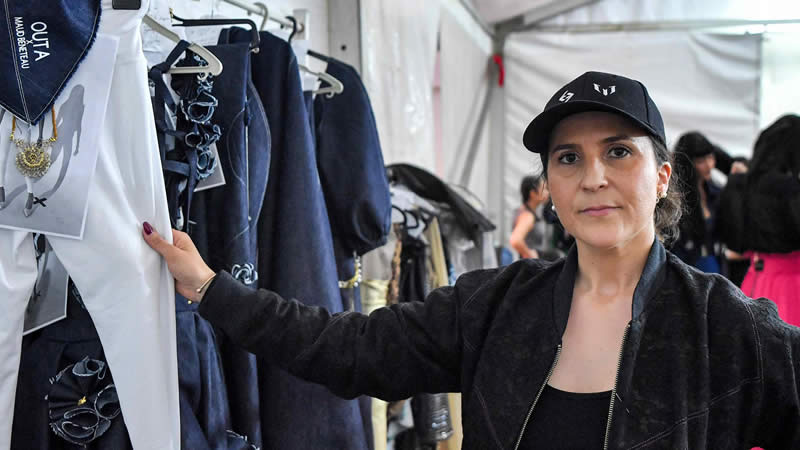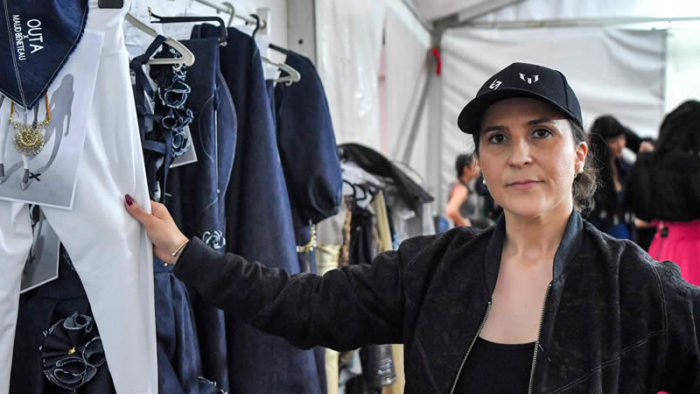Little do they know, their efforts contribute to an eco-fashion statement: transforming plastic waste into denim dresses for the eco-brand Outa.
They are part of a group of “barbeshas” (informal trash collectors) involved in the Kerkennah Plastic Free initiative, which aims to clear up the 7,000 tonnes of plastic littering Kerkennah Islands’ beaches annually. This project, funded by the EU, is coordinated by Jean-Paul Pelissier from CIHEAM, emphasizing the region’s potential for eco-tourism.
A significant environmental concern arises when marine currents bring plastic waste from Europe. The collected waste is processed and then sent to a company where it’s crushed and baled. Through a collaboration with Seaqual Initiative, this plastic gains value, being purchased by the consortium.
Once processed, the waste turns into “Seaqual Yarn” nylon fiber in Portugal. Although marine plastic currently makes up 10% of Seaqual Yarn, there’s hope to increase this proportion.
The recycling operation, except for the Portuguese connection, proudly holds a “Made in Tunisia” tag. Sitex, a renowned denim provider, collaborates with Anis Montacer of Outa to turn this yarn into denim, bearing additional costs due to the inclusion of marine plastic.
Outa’s ambition is to encourage other businesses to adopt eco-friendly practices. In collaboration with the famous designer Maud Beneteau, Outa showcased its first high-end collection, aiming to combine fashion with a mission to save the planet.
Beneteau admits challenges working with this new fabric, which feels different from traditional haute couture materials. However, the entire process, from sea waste to high fashion, tells a compelling story of innovation, sustainability, and hope. As aptly put: “Plastic fantastic: from sea waste to see a waist.” (AFP)


